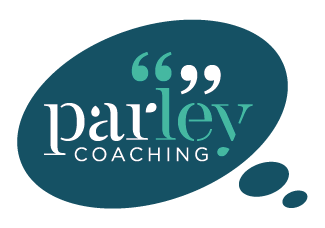
Is there a secret that can be coached?
How can people trust the harvest, unless they see it sown?
Mary Renault
To become the “Trusted Advisor” has become so cherished that it feels natural to make it a capitalised term, one that we can look at as one of the wonders of the professional services world. But what is it and how can you become it? Can it be learnt? I have thought a lot about this since I gave up being a lawyer and have started to wonder whether one of the secrets lies in what I am learning as a a coach.
I remember when I first discussed the term as a senior associate after an intense set of meetings advising a US business in the late 90’s. I watched as the partner at a Wall Street firm marshalled the client we shared. I was giving most of the advice as it was an English law deal but I reflected afterwards on how well the US lawyer had sat alongside his client, both physically and metaphorically. It taught me a lot. In a way, I then led my working life seeking to be sat alongside clients as much as possible. But I often failed. I was too busy to invest in certain relationships. I fluffed my lines regularly. I confused mine and my firm’s agenda with my clients’. I didn’t truly understand the constituent parts to being a Trusted Advisor and so even where I may have had the capacity to build such a relationship, I often did not.
Coaching has made me reflect again. Here are some thoughts before I conclude by asking the question of whether any of this coachable.
The magic formula?
David Maister, the leading writer on professional services management theory, wrote a whole book on being the Trusted Adviser. I haven’t read it for years. But part of my journey included part of his thinking. A consultant we were using to strengthen a team I was a part of, used a formula borrowed from Maister:
Trustworthiness = Credibility + Reliability + Intimacy
Self Orientation
This is a wonderful deconstruction in that it gets any aspiring Trusted Adviser thinking about what they are failing at (and faced with this formula each reader will draw different conclusions based on their own personality and experiences). My own immediate reflection was the importance of avoiding self-orientation; it is the denominator and can make all the hard work above the line worthless. Coaching aspiring Trusted Advisors can draw on the wisdom of this formula. But what has coaching helped me understand?
Thoughts on what makes great coaching is diverse, and there are multiple valid approaches. At the heart of great coaching, though, will always be the quality of the relationship between the coach and the coachee. In many ways the Grandfather of executive coaching is Dr Carl Rogers, an American psychologist. He promoted the person-centred approach to coaching that remains influential today, and he believed that at its heart was a relationship in which both the coach and coachee were congruent (aligned) and authentic. If such can be achieved, the relationship can build great things. There are other factors that go into successful coaching. For example, you need expertise in various models and techniques (“credibility”). But I have found that the most important work is the early, often slow process of building the trusting relationship.
So how does a coach build a great relationship?
Congruence is easier to achieve for a coach than for many seeking to be a Trusted Adviser and in a sense the retained primacy of it as a concept correlates well with the Maister denominator of choice: self orientation. This should be easier for coaches but is often very hard for lawyers. Clients often start from a position of seeing lawyers as just another transaction. I need to instruct a lawyer. Who is best suited? If there is choice, who is cheapest? Unless the client has experience of a Trusted Adviser, they will rarely seek out such a person. Add to this the common sentiment that lawyers are paid too much, that the chargeable hour has lost its connection to reality and to value. To be the Trusted Advisor your actions will need to show your client that you are both confident in your own value and that you are aligned.
Authenticity is always hard and is far less talked about in the context of lawyers. It should be talked about alongside alignment, like it is in coaching. To be a Trusted Adviser you need to be real, genuine, believable. You can’t fake this. You have to spend years learning what kind of adviser you are and are not, you have to build your own core values, you need to exude your own self in a way that speaks for itself.
Perhaps the Maister formula is the better platform for understanding how a good lawyer becomes a Trusted Adviser. And I am not arguing that you become a Trusted Adviser without the technical expertise. But I do wonder. Alignment and Authenticity. Keep it simple.
Coaching for aspiring Trusted Advisors
By building the right coaching relationship, the hardware for clients to grow is being created. It models the relationships lawyers are seeking to build with clients. It involves better listening, genuine interest, respect, humour, incisive questions. All for an understood and aligned purpose. I am careful when coaching to “bring me” into the relationship, not too much, but enough for it to feel authentic. This is the start.
The focus for the coaching will depend on the person being coached but common approaches are likely to include:
What kind of lawyer do you want be? (I question whether you can be authentic until you have answered every layer of this question?)
To whom do you aspire to be a Trusted Adviser? (Trusted Advisor isn’t a title that you get given and then can’t relinquish. It is about each relationship. You need to understand your relationships. Which are purely transactional with little chance of developing? In which is there a hint of something more like an alliance? Where should my priorities lie? What does this exercise tell me about the skills I still need to enhance?)
How does the authentic you appeal? (This is very different to following cliched, generic “How do you sell yourself?” prescriptions. It is an invitation to be honest with yourself as to what you are and what you are not and then embrace it. The stuff of coaching.)
What are you going to do to achieve this?
Which takes me back to Mary Renault’s wise words. “How can people trust the harvest, unless they see it sown?” Many lawyers believe the way to become the Trusted Adviser is to focus on technical credibility and then to position themselves in front of clients as experts. They believe it is a sign of weakness to show any of the workings, to show how they got there, who they really are. Those lawyers will not become Trusted Advisers. Trusting you requires the clients to see the seeds being sown. Trusted Advisors often intuitively allow this to happen over time in the same way as a coach seeks to do. If you believe in the investment you are making with each client, you will harvest the rewards.
